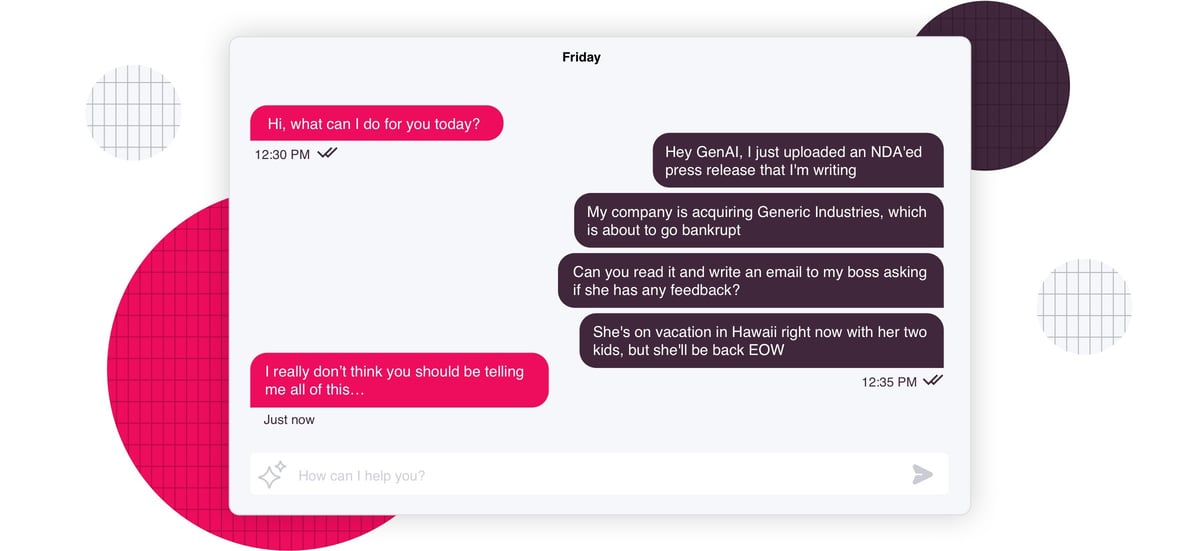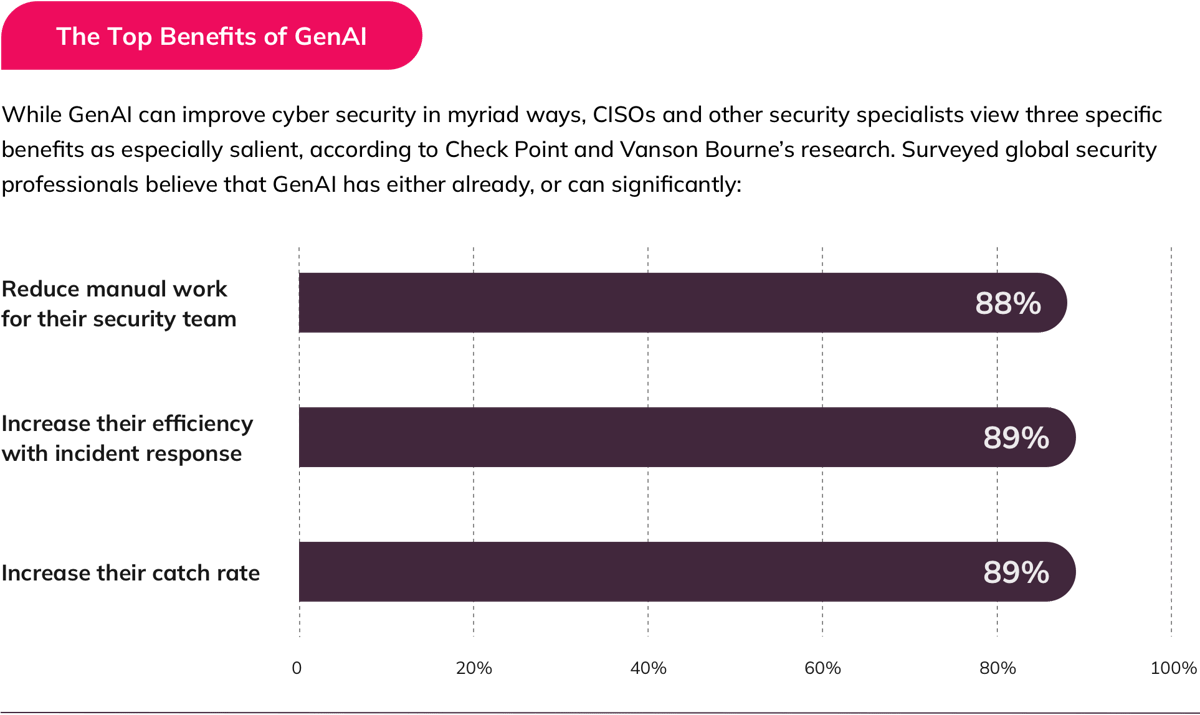
GenAI Security: Oversharing Employees Can Be as Dangerous as Hackers
The breathtaking speed at which generative artificial intelligence (GenAI) is advancing is creating excitement among many business leaders, who are focused on its powerful, field-ready capabilities that were unimagined just a short time ago. But they also fear unwanted consequences from this unbottled genie.
GenAI tools (such as ChatGPT) that can instantly generate text, images, video, 3D models and other creations are fueling new opportunities in marketing, data analysis, coding and other vital areas across nearly every industry. They’re also spurring evolution in tech-heavy sectors, with cyber security a leading example. A 2024 survey of global security professionals1 found that nearly all (about 99%) reported that their organizations currently use AI-powered tools in their security systems, with about 76% saying they’ve used GenAI in their security setup for more than a year.
Given that organizations across the world experienced an average of 60,000 cyber attacks each in 2023, it’s understandable why AI’s usefulness in preventing cyber crime gets less attention than its potential risks. “How can criminals use this against us?” is typically the first question business leaders have about GenAI, and the answers are unsettling.
“Unmanaged use of generative AI in enterprise organizations is one of the things that probably poses the most immediate risk to business leaders,” says Cindi Carter, Chief Information Security Officer and C-Suite Advisor at Check Point Software Technologies, which protects over 100,000 organizations worldwide with its AI-powered, cloud-delivered cyber security platform.
A two-pronged challenge
GenAI is quickly escalating into a multi-sided threat. On one front, it’s given bad actors a powerful new weapon to launch ever more sophisticated cyber attacks. “Before generative AI, cyber criminals needed to have both the intent and advanced tech capabilities in order to execute highly effective attacks,” says Carter. “Now, they really just need the intent.”
On a second front, self-inflicted damage is on the rise. Every day, countless employees feed sensitive corporate information into commercial GenAI apps that may disseminate it to unguarded data reservoirs – and into the hands of criminals.
“Organizations are still learning how to use GenAI effectively and how to manage it,” says Carter, who firmly believes that the good guys will prevail. “I am very optimistic that GenAI will empower cyber security protectors in a much greater way than the cyber criminals will benefit from it.”

New allies in defense – and offense
Organizations now use AI-powered tools to augment their cyber security capabilities in every fundamental way, from malware detection and incident response to threat intelligence monitoring, preventing even novel attack strategies from breaching frontline defenses.
The most advanced tools must create a seamless human-machine collaboration that allows teams to work with unprecedented efficiency, integrating with their existing platforms to offer comprehensive control of every security capability – all with a natural-language user experience that redefines ease-of-use.
Check Point Infinity AI Copilot, an AI-powered assistant launched in January 2024, epitomizes this cutting-edge approach by leveraging GenAI to improve cyber security management and effectiveness throughout the enterprise. A powerful ally to security teams, it automates complex security tasks, reducing the time humans spend on tasks by up to 90%.
“Check Point’s AI Copilot elevates your cyber security team by freeing them to use their skill sets and critical thinking skills on higher-value activities,” says Carter. “By taking low-level and repetitive tasks off their hands, they can respond to sophisticated threats more quickly and accurately, and also focus on strategic innovation.”
While many AI models are siloed, AI Copilot helps manage security across the entire Infinity Platform by leveraging ThreatCloud AI, a threat intelligence database fed from 150,000 connected networks and millions of endpoint devices. It is capable of executing 2 billion decisions daily to instantly stop attacks that use both known and previously unseen tactics.
“AI has been a core part of our technology for over a decade,” says Carter. “All of our AI insights are collected by ThreatCloud AI, which is the brain behind every product we have. By analyzing global threat data with more than 50 AI engines, it empowers organizations to not only defend against cyber threats, but prevent them, as well.” Check Point Research continuously investigates the planet’s most dangerous cyber attacks and vulnerabilities to ensure that they are neutralized instantly, with no patching needed.
Navigating the GenAI transformation
Organizations that embrace GenAI in their data security systems will reap a more resilient digital future and, ultimately, more securely safeguard the data entrusted to them by their clients, employees and other parties. It’s up to the good actors to stay on the vanguard of this powerful technology as it quickly evolves.
“I believe that AI will elevate society, delivering huge benefits for humanity, for the economy and for ecology,” says Carter. But she cautions that organizations can’t afford to fall behind as the pace of innovation becomes more intense: “We’re not going to go back to where we were five minutes ago, let alone five years ago.”
1Commissioned research with Vanson Bourne, 2024
